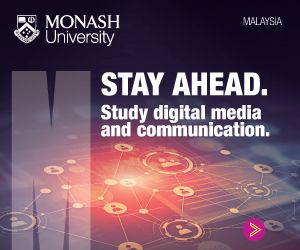Mobile technology has changed the way we communicate today.
MOBILE technology has changed the way we communicate today. With more than five billion people around the world currently owning a mobile device – half of which are smartphones – one would be hard-pressed to imagine a time when mobile phones were not part and parcel of everyday life.
Whether it’s WhatsApp chat groups, subscribed Twitter feeds or Facebook live broadcasts, the rise of social media means that communication is no longer a one-way street. Not only are people able to obtain information instantly and in different forms, but they generate content as well.
“Technology has made the way we consume information more visual, such as the use of memes to make sense of things. In some ways, digital and social media have made it easier for lots of people to express themselves and be heard. Still, there needs to be an understanding of who gets to say what, the power dynamics inherent in contemporary forms of communication, ” said Monash University Malaysia’s School of Arts and Social Sciences Communication and Media Studies Assoc Prof Emma Baulch.
Why theory matters
As educators of the future workforce, universities have to continually reassess programmes to ensure the course content is relevant and effective in producing graduates that are market-ready and well equipped to tackle digital disruptions that come their way.
According to Baulch, instead of focusing on the technical know-how of the latest in communication technology, Monash University Malaysia’s new Bachelor of Digital Media and Communication (BDMC) course aims to build a strong foundation in media and communications theories, albeit with a digital focus.
“This course sits within an arts school, so there is an emphasis on theories and concepts that look at digital within a social context. We look at how digital shapes society, which fits in with universities’ historical role in developing theoretical and conceptual knowledge around contemporary developments, ” she said.
Understanding how digital media sit within a broader context of history gives students a greater appreciation of what makes digital unique so that they can better figure out how new technologies shape the future and forge social change, Baulch added.
“We talk about how to develop critical thinking when engaging in a digital environment rife with misinformation. We also provide an understanding of the particular ways digital content circulates. If you understand how content becomes viral, you will then understand the possibilities digital environments present for things like corporate communications or crisis communications, ” she said.
Multiple career pathways
A communications degree is not just reserved for media professionals, said Baulch. Potential careers BDMC students can look forward to include public relations, corporate communications, marketing, advertising, policy development, HR, management, research, editing and writing.
“We are training people to have knowledge and skills that are transferable across different sectors and industries. Social theories are important to this skill set. They afford a critical reading of the way things are in the world, and how they might be changed. Without critical knowledge, tasks requiring leadership or management skills become very difficult, ” she said.
Through the course, students learn research skills essential to cultivate critical thinking and to become agile thinkers. There is also a strong emphasis in developing written and oral communications skills, as well as skills in group work.
“You need to think for yourself and be flexible if you’re to keep up with the changes in digital environments, ” she said.
The course also includes a professional practice stream in which students undertake a digital research project with an NGO and undergo an internship for practical experience and exposure.
“This stream is strongly supported by our industry partners who provide vital input on industry perspectives and needs, ” she said.
Having a Monash degree gives students “international mobility” because the Monash brand is globally recognised
Established in 1998, Monash University Malaysia was the first Monash campus outside Australia. The Malaysian campus has approximately 8,400 students from 78 different countries. Monash University has 60,000 students internationally and a community of over 380,000 alumni living in 155 countries.
With over 100 partner universities worldwide, Monash students can opt for international mobility schemes as part of their course.
While there is a lot of hype over pursuing a career in STEM (Science, Technology, Engineering and Mathematics) in the digital age, mastering communications is still pertinent. “Digital communications is now part of our every waking moment. Nearly every individual on the planet has a mobile phone. Those with an understanding of the social and cultural challenges and possibilities of digital change will be among those to shape the future, ” said Baulch.
For more details about the programme, visit https://www.monash.edu.my/study/undergraduate/arts-social-sciences/bachelor-of-digital-media-and-communication or check it out on Application Day, Dec 14 from 11am to 4pm at Monash University Malaysia.









